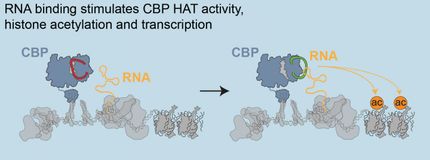OncoMethylome Sciences Licenses Technology from the Max-Planck-Institute for Detecting Novel Methylated Genes
OncoMethylome Sciences and the Max Planck Society announced that OncoMethylome Sciences has been granted an exclusive license to intellectual property developed by the Max-Planck-Institute (MPI) of biochemistry involving the silencing of several tumor-suppressor genes by DNA methylation in prostate cancer.
DNA methylation is one of the most common molecular alterations linked to the initiation and progression of cancers. This epigenetic alteration results in gene inactivation, or more accurately, silencing of gene expression. Scientists have known for a long time that silencing of genes, critical for inhibition of tumor growth, can lead to cancer development. Studies conducted at the Max Plank Institute of Biochemistry by Dr. Heiko Hermeking and Dmitri Lodyguine have identified several key tumor-suppressive genes that are methylated in prostate cancer tissue but not in normal prostate tissue or benign prostatic hyperplasia (BPH).
The genes will be evaluated, along with OMS's GST-Pi gene, to identify the optimum panel of methylated genes for early prostate cancer detection, prognosis and monitoring of recurrence. In numerous published studies, methylation of the GST-Pi gene has been shown to have a high correlation with the presence of cancerous cells in prostate biopsy tissue.
Garching Innovation, the technology transfer office of the Max Planck Society, concluded the license agreement with OncoMethylome Sciences. Dr. Matthias Stein-Gerlach, Patent and Licensing Manager at Garching Innovation, commented: "Dr. Hermeking and his group at the MPI of Biochemistry have made an important invention about the methylation status of several genes in prostate cancer cells. The licensing agreement with OncoMethylome Sciences is a significant step towards the translation of these findings into urgently needed improvements in the field of prostate cancer diagnosis."
Topics
Organizations
Other news from the department research and development

Get the life science industry in your inbox
By submitting this form you agree that LUMITOS AG will send you the newsletter(s) selected above by email. Your data will not be passed on to third parties. Your data will be stored and processed in accordance with our data protection regulations. LUMITOS may contact you by email for the purpose of advertising or market and opinion surveys. You can revoke your consent at any time without giving reasons to LUMITOS AG, Ernst-Augustin-Str. 2, 12489 Berlin, Germany or by e-mail at revoke@lumitos.com with effect for the future. In addition, each email contains a link to unsubscribe from the corresponding newsletter.
Most read news
More news from our other portals
Last viewed contents
Calming fear during sleep - First evidence that fear memories can be reduced during sleep
Chronic_obstructive_pulmonary_disease
Bothrops_atrox
TGen and Affymetrix Partner to Use GeneChip(R) DNA Analysis Products in Major Collaborative Programs - Genotyping Technology that Leverages an Innovative Whole-Genome SNP Assay Is Available to Commercial and Academic Research Partners and Future Collaborators
Additive copper-zinc interaction affects toxic response in soybean - The results of a recent study shed light on the copper-zinc relationship in soil and its effect on soybean toxic response
Vipera_berus_bosniensis





















































